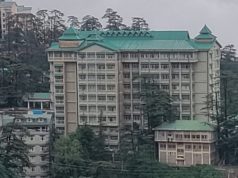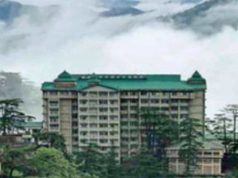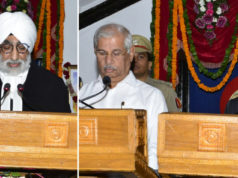Shimla: Taking serious note of hobnobbing of Public Prosecutors with some politicians to procure and secure orders of transfer of their convenience, Himachal Pradesh High Court on Wednesday has ordered that henceforth no Public Prosecutor, Assistant District Attorney and District Attorney shall be transferred on the basis of the D.O. Notes.
The Court further ordered that their transfers shall be effected strictly in accordance with the Comprehensive Guidelines, 2013, for regulating the transfers of the employees, that too, only by the Administrative authority.
A Division Bench comprising Justice Tarlok Singh Chauhan and Justice Chander Bhusan Barowalia, passed these orders on a petition filed by Public Prosecutor Tarsem Kumar.
According to the petitioner, on March 15, 2022, MLA from Nagrota Bagwan had issued a D.O. Note for the transfer of the petitioner at the behest of Shikha Rana.
In the instant case, both the petitioner as also the private respondent are Public Prosecutors and have at different times procured D.O. Notes from the local MLA for securing their transfers.
The defence of private respondent Shikha Rana is that the petitioner himself was transferred from Nurpur to Dalhousie in the year 2018, but he managed to get his transfer cancelled through D.O. Note by the local MLA.
It has been further averred that the petitioner himself managed his transfer thereafter from ADA office Nurpur to ADA office Kangra, on January 15, 2020, on the basis of three D.O. Notes given by MLA Rakesh Pathania, who himself was booked under section 452, 147, 149, 353, 332, 506 IPC and section 3 of Prevention of Damage to Public Property Act, pending adjudication before the Ld. Court of Judicial Magistrate First Class, Nurpur.
The petitioner being incharge of the prosecution case at that time procured the D.O note from Rakesh Pathania, who himself was undergoing trial in the said court.
The court observed that it has specifically come on record that a criminal case is pending against one of the MLAs, who issued a D.O. Note in favour of the respondent in that very Court where the respondent has been posted. The Court wondered whether with these falling standards can the public repose any trust or confidence in the Prosecutor as being fair and impartial as against the standards as are expected of a Public Prosecutor.
Since both the petitioner as also the private respondent are beneficiaries of the D.O. Notes, the Court has ordered to transfer and post them out of district Kangra.
Commenting on the act and conduct of the Public Prosecutor, Court observed that Public Prosecutor occupies a statutory office of high regard. Rather than a part of the investigating agency, they are instead an independent statutory authority. The role of the Public Prosecutor is intrinsically dedicated to conduct a fair trial and, therefore, it does not behove well that these Attorneys be seen hobnobbing with the politicians or socializing with the public. The conduct and behaviour expected of them is nothing short of that expected of a Judicial Officer.
The Court further observed that since, both the petitioner as well as a private respondent have feigned ignorance regarding the working and ethics of the Department, it gives an impression that probably such Public Prosecutors, who are now being inducted into service, are not at all aware of the status they hold and the conduct and behaviour that is expected of them by virtue of their office alone.
The Court has ordered that all the Public Prosecutors inducted in service over the last 15 years, irrespective of their ranks as Assistant Public Prosecutors or Public Prosecutors, should undergo a refresher course designed, laying special emphasis on ethics, morality and conduct expected of a Public Prosecutor, in the Himachal Pradesh Judicial Academy, Shimla.
The Director, Himachal Pradesh Judicial Academy, has been directed to design such a course within a period of four weeks and thereafter they be provided training/ refresher courses on batch-wise basis stretched over a period of two months.











